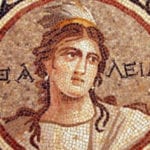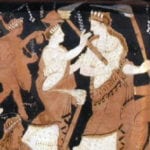 Our World
Our World  Our World
Our World  Pop Culture
Pop Culture 10 Incredible Female Comic Book Artists
 Crime
Crime 10 Terrifying Serial Killers from Centuries Ago
 Technology
Technology 10 Hilariously Over-Engineered Solutions to Simple Problems
 Miscellaneous
Miscellaneous 10 Ironic News Stories Straight out of an Alanis Morissette Song
 Politics
Politics 10 Lesser-Known Far-Right Groups of the 21st Century
 History
History Ten Revealing Facts about Daily Domestic Life in the Old West
 Weird Stuff
Weird Stuff 10 Everyday Products Surprisingly Made by Inmates
 Movies and TV
Movies and TV 10 Actors Dragged out of Retirement for One Key Role
 Creepy
Creepy 10 Lesser-Known Shapeshifter Legends from Around the World
 Our World
Our World 10 Science Facts That Will Change How You Look at the World
 Pop Culture
Pop Culture 10 Incredible Female Comic Book Artists
 Crime
Crime 10 Terrifying Serial Killers from Centuries Ago
Who's Behind Listverse?

Jamie Frater
Head Editor
Jamie founded Listverse due to an insatiable desire to share fascinating, obscure, and bizarre facts. He has been a guest speaker on numerous national radio and television stations and is a five time published author.
More About Us Technology
Technology 10 Hilariously Over-Engineered Solutions to Simple Problems
 Miscellaneous
Miscellaneous 10 Ironic News Stories Straight out of an Alanis Morissette Song
 Politics
Politics 10 Lesser-Known Far-Right Groups of the 21st Century
 History
History Ten Revealing Facts about Daily Domestic Life in the Old West
 Weird Stuff
Weird Stuff 10 Everyday Products Surprisingly Made by Inmates
 Movies and TV
Movies and TV 10 Actors Dragged out of Retirement for One Key Role
 Creepy
Creepy 10 Lesser-Known Shapeshifter Legends from Around the World
10 Incredibly Bizarre Ways People Died In Ancient Greece
Hardly anyone in ancient Greece died with dignity. Stories of great Greek heroes dying quietly in their sleep are few and far between—or at the very least are eclipsed by stories of people dragged by chariots and stabbed in their tendons.
These weird deaths aren’t just an ancient history thing; they struck the Greeks more than anyone. Perhaps it was because they tried things that others didn’t have the courage to attempt, or perhaps they simply knew not to taint a good story with facts. We will never know sure what was happening, but based on the stories the ancient Greeks left behind, Greece in its prime was a country overrun with an epidemic of absurd, Looney Tunes–like deaths.
10 Bupalus Was Insulted So Bad That He Killed Himself

Hipponax was a poet, or at least that’s what the Greeks called him, for lack of a better word. He didn’t exactly write about flowers and dragonflies. In his poems, it was rare to make it through more than a few words without a reference to human waste or fellatio.
He was also one the ugliest men in history, so it might not be surprising that when he proposed to his one true love, she turned him down. After that kind of heartbreak, most would move on and find someone else, but Hipponax wasn’t the type of person to take the higher road. Instead, he wrote a series of poems insulting her father, Bupalus, which hit hard enough that Bupalus hung himself.
Most of Hipponax’s insults are lost to time, but the few fragments left have enough of a theme to fill in the blanks. One line calls Bupalus a “godforsaken wretch, who used to poke his sleeping mother’s sea anemone.” Another says that Bupalus liked to get fellatio from his own mother. In another, Hipponax just gets to the point and calls him a “mother-f—er.”
9 Chrysippus Died From Laughing At His Own Joke
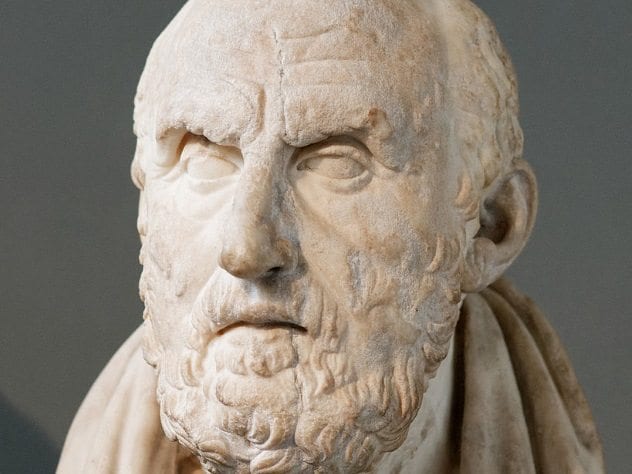
Chrysippus was one of the leading Stoic philosophers, but he didn’t exactly live up to the name. The Greeks called him “a man of exceeding arrogance,” so perhaps it’s fitting that he died laughing at his own joke.
Chrysippus was ridiculously prolific, and he had a pretty twisted sense of humor. Over the course of his life, he wrote 705 separate books. Most have been lost, but we’re told that his most famous work was one about the goddess Juno being a prostitute, which according to the Greeks, “no one could repeat without polluting his mouth.”
Chrysippus met his end one day when he saw a donkey eating figs and decided that the animal, struggling with the sticky fruit, was the funniest thing he’d ever seen in his life. So he got the donkey drunk, and apparently, that made things so hilarious that he laughed himself to death.
8 Draco Was Smothered To Death By Gifts
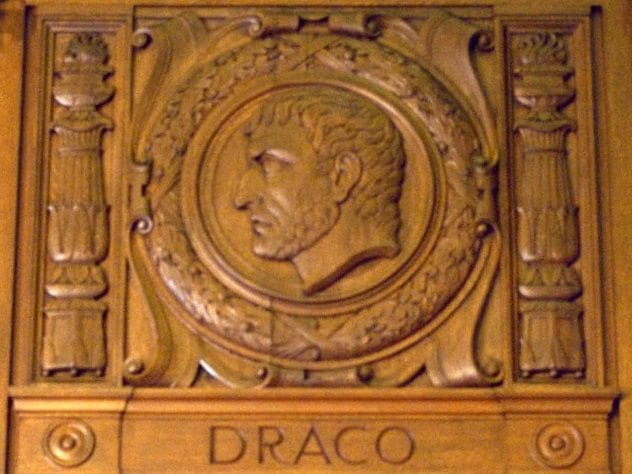
The man whose harsh laws inspired the word “draconian” died in the absolute last way you’d expect. Draco was a man who felt that stealing cabbages should be punishable by death—yet he was so well-loved that he ended up being literally crushed under the weight of his own popularity.
Draco, the legend goes, was at the theater in Aegina when his supporters decided to let him know how much they loved him. So they started throwing their hats, shirts, and cloaks at him. This was how ancient Greeks showed appreciation: by ripping the clothes off their body and throwing them at you.
Draco’s fans got a little carried away, and he ended up being completely smothered under their flung tunics. He suffocated to death under the weight of the clothing of hundreds of sweaty Greek men.
7 Heraclitus Covered Himself In Poo And Was Eaten By Dogs
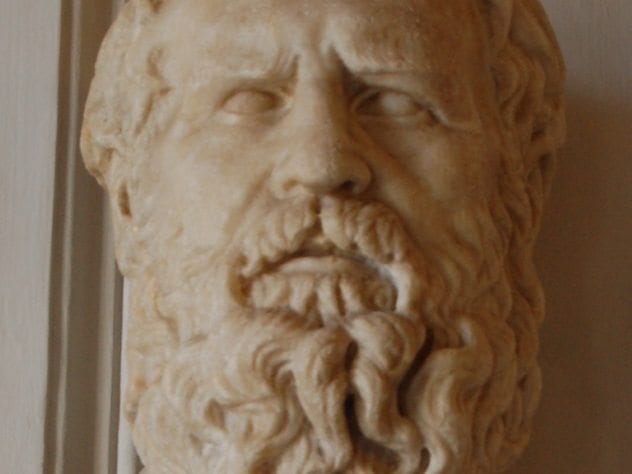
The philosopher Heraclitus’s death might sound a little strange, but there was a reason he was covered in poo and hanging around ravenous dogs. It wasn’t a good reason by any means, but it was a reason.
Heraclitus had dropsy(edema/swelling), and though the doctors told him there was no cure, he figured he could outsmart them all. “By emptying the intestines,” he told them, one could “draw off the moisture.” The doctors didn’t know what in the world he was talking about, but apparently, “draw off the moisture” was his way of saying, “I’m going to cover my entire body in cow dung.”
It’s not entirely clear why Heraclitus thought covering himself in cow dung would cure him or why he ignored all the doctors who told him otherwise. Either way, he spent the day laying in the sun covered in manure. When he woke up, the manure was so thick that he couldn’t move. He lay there, covered in hardened manure, trying to stand up—until wild dogs came along and devoured him alive.
6 Thucydides Died In Mid-Sentence
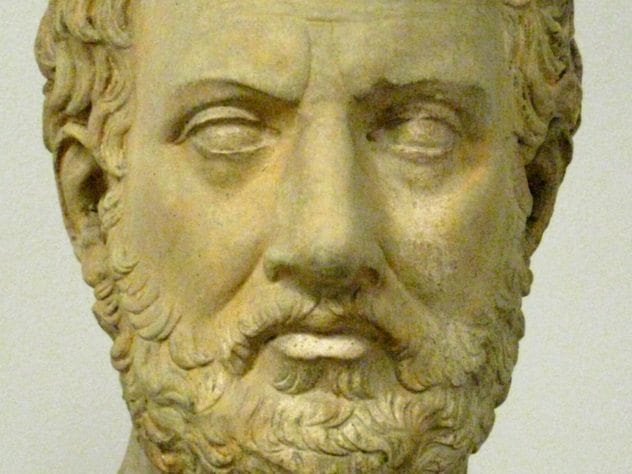
Thucydides wrote the History of the Peloponnesian War, and it’s one of the most reliable sources on the war that we have. He’s also considered one of the most reliable sources for ancient Greek history. Thucydides was one of the few who didn’t pepper his stories with rumors and mythological creatures, which makes it a shame that somebody killed him right while he was in the middle of writing the History.
Thucydides had actually fought in the Peloponnesian War but got kicked out of Greece for failing to defend the city of Amphipolis. For years, he lived in exile, putting together his history until, one day, it was ruled he could come back. The Greeks sent him word, and an eager Thucydides rushed back to see his homeland again.
And then he was murdered. We don’t exactly know the details, except that somebody killed him on the way and that he was in the middle of writing a sentence when it happened. His book, to this day, ends right in middle of a thought he never finished.
5 Pyrrhus Died When An Old Woman Dropped A Floor Tile On His Head
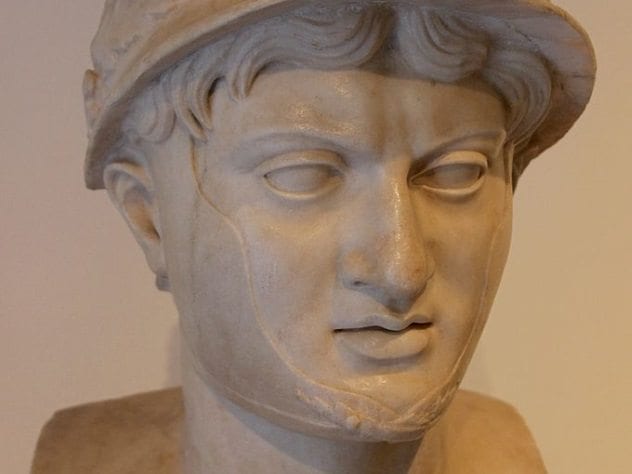
The legendary Greek general Pyrrhus wasn’t a man to stand by the sidelines while his men did the fighting. He rushed into battle on the front lines, risking his own life with his men. Therefore, when he charged his army down the streets of Argos, he was ready to die a warrior’s death.
He was probably a little less ready to be killed by an elderly woman, but you don’t always get what you want.
The old woman was watching from the rooftops when Pyrrhus’s army marched in. Her son managed to hit Pyrrhus in the breastplate with his spear, and that landed him in Pyrrhus’s sights. He moved in for the kill, but he had no idea that this man’s mother was watching him and that she wasn’t about to let anyone hurt her little boy.
The old woman dropped a floor tile and hit Pyrrhus square in the head. It crushed his vertebrae and sent him crashing off of his horse. He was still alive, though—for the moment.
Another soldier dragged Pyrrhus into the staircase to give him a quick, clean death by decapitation. However, Pyrrhus was staring at the soldier, and he got nervous. He missed and hit Pyrrhus square in the jaw, instead. He had to take a couple of extra swings to put Pyrrhus out of his misery.
4 Philitas Starved To Death Correcting Other People’s Errors

Philitas was born in the wrong age. In the era of Internet commenters, he would have been king—or at least would have a decent collection of rare Pepes. But in the Greek era, he became nothing more than a cautionary tale.
He spent his time correcting people’s errors. Every time somebody used the wrong word or made a logical mistake, he’d write up paper after paper explaining what they’d done wrong. He got so caught up writing them that, legend has it, he starved to death while pedantically pointing out a poor word choice.
It became his legacy. His tomb was engraved with the words: “Stranger, Philetas is my name. I lie slain by fallacious arguments, and cares protracted from the evening through the night.”
3 Arrichion Was The First Corpse To Win An Olympic Competition
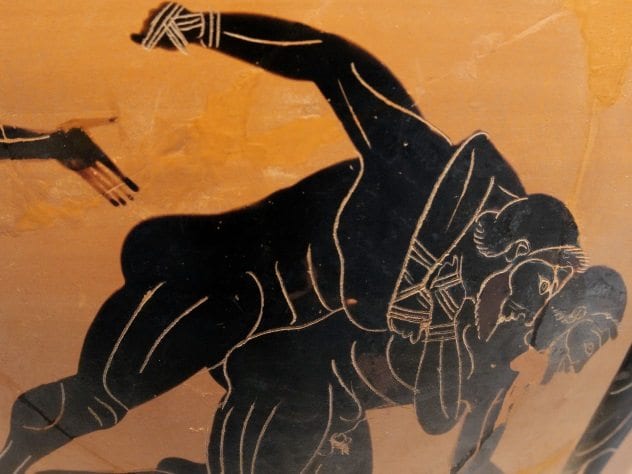
Arrichion was a pankratiast. Pankration was an ancient Greek no-holds-barred fighting competition. It was a major event in the Olympics and one of the few sports we don’t follow today—which is probably because of how often these matches ended with someone dying.
Arrichion was in the final match of the competition, battling for the Olympic wreath, when his opponent got him a choke hold. He was strangling the life out of Arrichion and grinding his legs into Arrichion’s groin, too, just for good measure. Arrichion was ready to give up, but his trainer wouldn’t have it. He called out, “What a wonderful funeral speech if one can say: he did not give up at Olympia!”
That apparently inspired Arrichion, so he kept fighting. He managed to get his opponent in a leg lock and wrenched his ankle out of its socket. It put the man through so much pain that he gave up. But by the time he’d tapped out, Arrichion was already dead.
Arrichion won the unique honor of going down in history as the first dead person to win the Olympic wreath.
2 Aeschylus Died When An Eagle Dropped A Tortoise On His Head
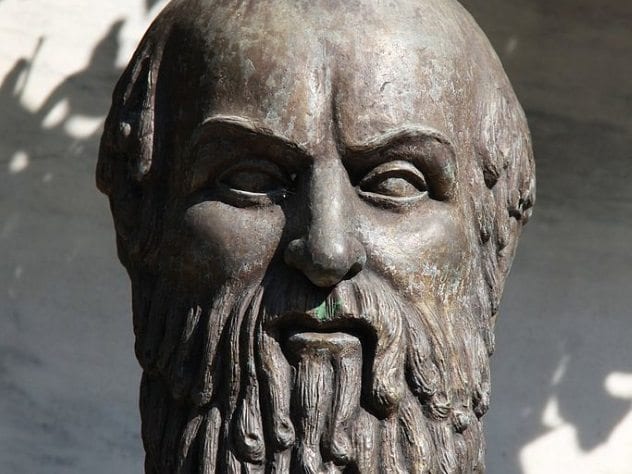
Aeschylus was the first great tragedian, and he lived his whole life with the looming threat of his own tragic end. An oracle had told him that he would die by a blow from heaven, so he lived waiting for some dramatic fate: for a god to strike him down from above or for the walls of a house to come collapsing down upon him.
Instead, a tortoise fell on his head.
While Aeschylus was in Sicily, an eagle flew overhead carrying a tortoise in its talons. This type of eagle liked to drop its prey on rocks to break their shells. When it saw Aeschylus’s shiny bald head, it thought he was a rock and let the tortoise drop. Aeschylus’s head broke open instead of the tortoise’s shell.
1 Empedocles Threw Himself Into A Volcano To Become Immortal
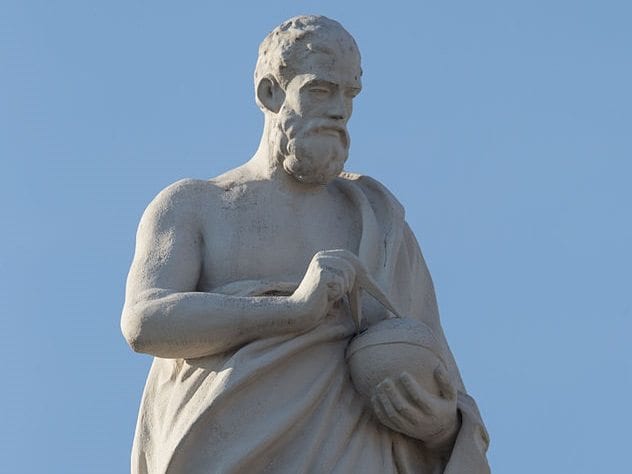
“In some passages,” Diogenes wrote about Empedocles, “one may see that he is boastful.” It seems that Diogenes was choosing his words carefully—like he was worried about pushing an opinion on his readers. So, to let his readers decide for themselves, he wrote, “At any rate, these are his words,” and then gave a quote from one Empedocles’ poems:
All hail! I go about you an immortal god!
We suppose this could be seen as a little boastful.
Empedocles met his end after he cured a woman whom no other physician could cure. This, he decided, was clear proof that he was a god. So he gathered up 80 people, climbed up to the top of a volcano, announced that he was now immortal, and then jumped in.
He didn’t quite pull off the jumping-back-out part of the trick, so most wrote him off as another crazy person. Then again, we are writing about him today, 2,500 years after his death. Perhaps, in a way, every one of the men on this list truly did find a way to live forever.

